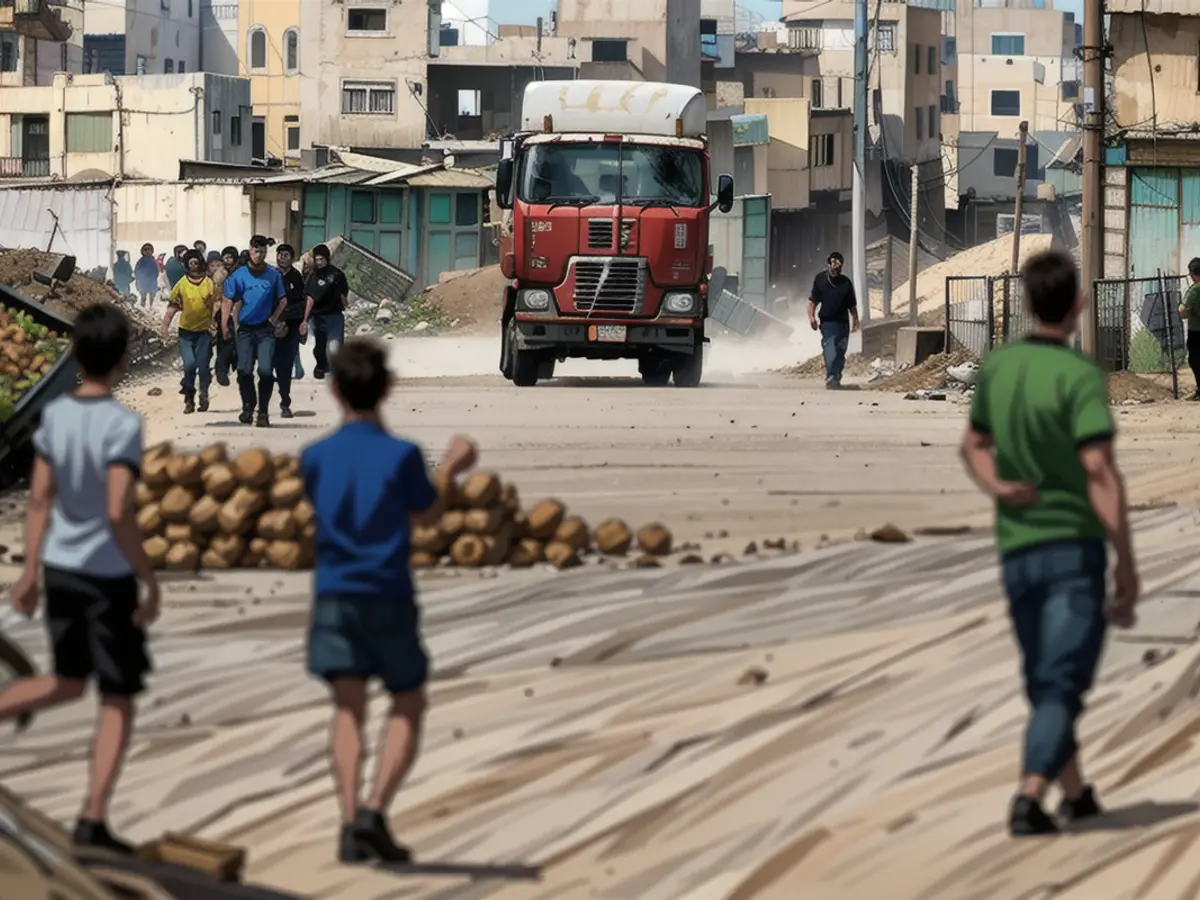The United Nations' food agency is struggling to provide for enough Gazans in the 'apocalyptic' Rafah region as Israeli forces advance into the city.
The World Food Programme (WFP) is only feeding 27,000 people in Rafah, said Matthew Hollingworth, who oversees the organization in Gaza. With over a million Gazans displaced, this is a small fraction.
Hollingworth, speaking to reporters after his recent trip to Gaza, described the situation as tragic and reminiscent of an apocalypse. "People sleep surrounded by the sounds of war," he said, detailing the everyday life there. "They're sleeping with the noise of battles, the hum of drones, and the movements of tanks nearby."
From May 7 to May 20, no WFP trucks reached Rafah through the southern corridors of Egypt. In the past, Rafah served as Gaza's primary conduit for aid, acting as the only border crossing not regulated by Israel.
Now, thanks to Israel's takeover of Rafah's crossing, aid has ground to a halt. Aid supplies have been piling up in Egypt while Gaza faces the threat of starvation.
Meanwhile, despite warnings from the international community, the Israeli military has been making inroads into Rafah. According to reports, Israeli soldiers found launchers for Hamas rockets, tunnels, and weapons in central Rafah, as well as a weapons depot.
The IDF's operations in Rafah are causing a significant reduction in humanitarian aid. The UN claims that the amount of humanitarian inputs decreased by 67% since IDF's operations in the city began.
Modern Gazan life consists of receiving about 58 aid trucks per day, significantly lower than the 176 trucks per day between April and May (still a far cry from the 500 trucks that used to pass through before the conflict).
Besides, the IDF has managed to establish control over the Philadelphi Corridor, a 14-kilometer swathe of land on the Palestinian side of the Egypt-Gaza border. This has led to a further reduction in aid flowing into Gaza.
Hollingworth, representing the WFP, said that the organization was working with only 36 trucks that reached Rafah through the Kerem Shalom and Erez exits on Thursday. The WFP's warehouse in Rafah, which could once store 2,700 tons of grain, has ceased operating.
"Today we don't have much food to distribute," Hollingworth said. "We can't provide much in the way of ready-to-eat ration boxes, and very little wheat flour to those families who can cook." Despite this, he claimed that they were managing to provide around 400,000 hot meals for families residing in central Rafah.
Hollingworth explained the issue, offering context: "This is what we've been facing for the last days. The bulk of our operations was in central Rafah, where key infrastructure was hit." He, however, assured a slight improvement in the situation, describing the current humanitarian relief transported to the region as "much more".
The IDF claimed on Friday that they struck locations linked to Hamas, in response to continuous rocket attacks despite the ceasefire. The military operation left "terror tunnel shafts," "Hamas rocket launchers," and "weapons" in their wake, according to their official statement.
However, this activity raises fresh concerns for Gaza's population, who now have to rely on only two crossings, Kerem Shalom in the south and Erez in the north. The WFP continues to grapple with limited resources and infrastructure to aid them.
Read also:
The Middle East is a region of ongoing conflict and humanitarian crises, with Gaza being a prime example. The world community, including organizations like the World Food Programme, is deeply concerned about the situation in Gaza, especially in areas like Rafah.







